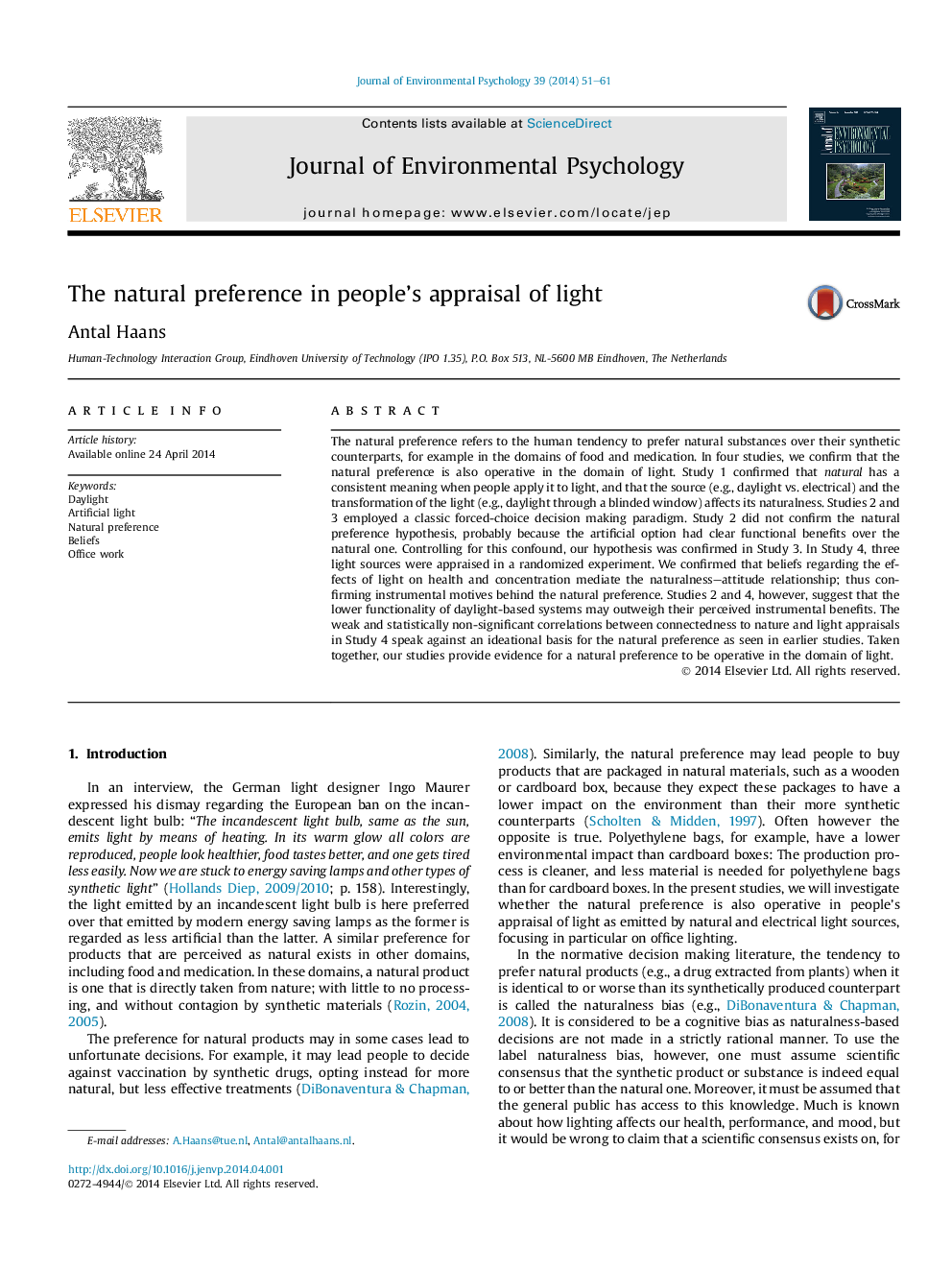| Article ID | Journal | Published Year | Pages | File Type |
|---|---|---|---|---|
| 885592 | Journal of Environmental Psychology | 2014 | 11 Pages |
The natural preference refers to the human tendency to prefer natural substances over their synthetic counterparts, for example in the domains of food and medication. In four studies, we confirm that the natural preference is also operative in the domain of light. Study 1 confirmed that natural has a consistent meaning when people apply it to light, and that the source (e.g., daylight vs. electrical) and the transformation of the light (e.g., daylight through a blinded window) affects its naturalness. Studies 2 and 3 employed a classic forced-choice decision making paradigm. Study 2 did not confirm the natural preference hypothesis, probably because the artificial option had clear functional benefits over the natural one. Controlling for this confound, our hypothesis was confirmed in Study 3. In Study 4, three light sources were appraised in a randomized experiment. We confirmed that beliefs regarding the effects of light on health and concentration mediate the naturalness–attitude relationship; thus confirming instrumental motives behind the natural preference. Studies 2 and 4, however, suggest that the lower functionality of daylight-based systems may outweigh their perceived instrumental benefits. The weak and statistically non-significant correlations between connectedness to nature and light appraisals in Study 4 speak against an ideational basis for the natural preference as seen in earlier studies. Taken together, our studies provide evidence for a natural preference to be operative in the domain of light.
